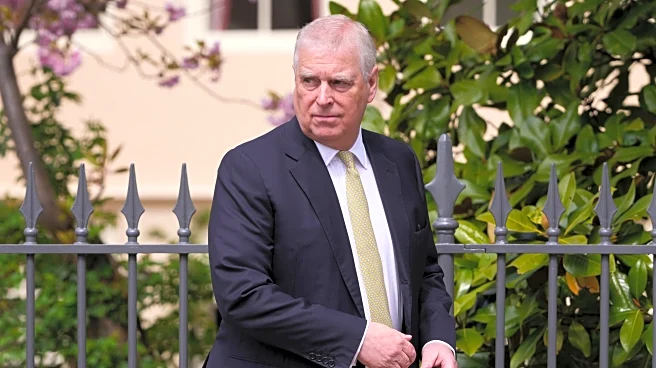Rapid Read • 9 min read
President Trump has intensified his protectionist trade policies, leading to significant economic chaos and uncertainty. His administration has imposed tariffs on countries with trade surpluses and deficits alike, citing reasons such as national security and job creation. Despite these measures, the unpredictability of Trump's trade policies poses a threat to the global economy. Tariff announcements have been followed by delays and revisions, with deadlines for new trade deals often extended. The administration has secured few new trade agreements, and those have come with unexpected conditions. For instance, a recent deal with Vietnam imposes a 20% tariff on imports unless Vietnam eliminates tariffs on US goods and avoids Chinese components, otherwise increasing to 40%. Similarly, tariffs on Chinese goods have fluctuated, currently averaging 51.1%. Trump's actions have led to confusion, with over one million different tariff rates, complicating customs processes.
AD
The erratic nature of President Trump's trade policies has significant implications for the US economy and global trade relations. These tariffs are intended to strengthen national security and reduce trade deficits, but they often result in increased costs for imports and provoke retaliatory measures, harming exports. The unpredictability of tariffs discourages investment and trade, potentially leading to job losses and reduced economic growth. Additionally, the complexity of the tariff system fosters crony capitalism, as businesses and foreign officials lobby for exemptions. The tariffs may also undermine the free market, leading to rent-seeking and corruption. Overall, Trump's trade policies could have long-term negative effects on US productivity and international economic stability.
The future of President Trump's trade policies remains uncertain, with potential for further tariff increases and new trade agreements. Stakeholders, including businesses and foreign governments, may continue to lobby for favorable terms and exemptions. The administration's approach to trade could lead to ongoing tensions with major trading partners, such as the European Union and China, who may retaliate with their own measures. The impact on domestic industries and the broader economy will depend on how these policies evolve and whether they achieve their intended goals of reducing trade deficits and strengthening national security.
President Trump's trade policies highlight deeper issues within the global economic system, such as the balance between protectionism and free trade. The tariffs raise ethical questions about the fairness of targeting allies and the potential for increased costs in defense procurement. Additionally, the rise of crony capitalism and lobbying efforts for tariff exemptions reflect broader concerns about corruption and the influence of special interests in policymaking. These developments may lead to long-term shifts in international trade dynamics and the role of the US in the global economy.
AD
More Stories You Might Enjoy











